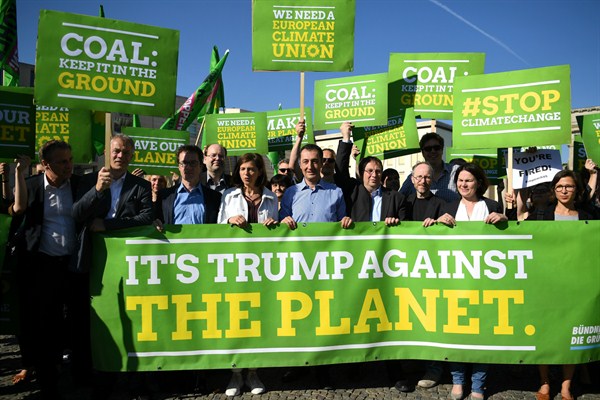After months of speculation, President Donald Trump announced Thursday his decision to withdraw the United States from the Paris climate change agreement. The move came in the face of high-profile pressure from a diverse set of voices—everyone from Pope Francis and U.S. military brass to business leaders such as Tesla CEO Elon Musk and ExxonMobil CEO Darren Woods, and other members of the G-7 had urged the U.S. president to remain in the accord. Nevertheless, Trump declared in the White House Rose Garden that “we’re getting out” of the landmark deal to reduce global carbon emissions.
Trump immediately added that “we will start to negotiate, and we will see if we can make a deal that’s fair. And if we can, that’s great. And if we can’t, that’s fine.” A day earlier, White House insiders had leaked Trump’s decision to fulfill one of his campaign pledges to “cancel” an agreement he slammed during last year’s election. His announcement starts the clock on Article 28 of the agreement, which means the United States would formally exit the deal on November 4, 2020 at the earliest.
The possibility of such an abrupt turnaround, coming as it did just over a year since the Paris Agreement went into effect, had been feared since Trump took office in January. Now that it is a reality, it is important to understand what this decision will and will not change about global governance on climate change issues.

